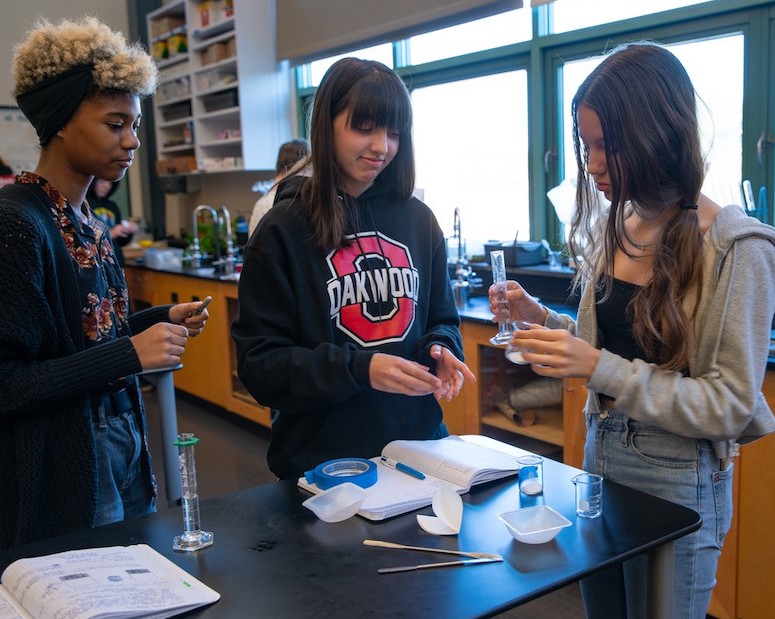Science
 Seventh Grade Curriculum
Seventh Grade Curriculum
Students are introduced to a wide range of concepts and the critical thinking skills necessary for the scientific method. There is an emphasis on hands-on, experiential learning. Topics include:
-
Ecology: life cycles, biomes, and environmental conservation
-
Cell Biology: structure and function of cells and single-celled organisms
-
Animal Phylogeny: structure and function of animals and study of evolutionary advances in animals
SCIENCE 100
GENERAL SCIENCE I — Grade 7
The seventh-grade science course is the first part of a two-year middle school sequence. This life science course introduces students to a wide range of concepts and techniques with a heavy emphasis on hands-on, experiential learning. Students are introduced to concepts of lab investigation design and work collaboratively on projects and labs. Topics covered include Ecology (including life cycles, biomes, and environmental conservation), Cell Biology (including structure and function of cells and single-celled organisms), and Animals (including adaptations and the evolutionary development of structure). In addition, the seventh-grade science curriculum includes technology integration and the development of computer skills.
Eighth Grade Curriculum
In eighth grade, students gain considerable lab experience and continue to build on the skills acquired in seventh grade. Topics include:
-
Chemistry, atomic structure, and chemical bonding
-
Physics, conceptual understanding of mechanics
-
Astronomy, exploring the phases of the moon, star formation, and our solar system
SCIENCE 200
GENERAL SCIENCE II — Grade 8
The eighth-grade science course is the second part of a two-year middle school sequence with an emphasis on physical science. Students will develop scientific skills of investigation and analysis, building on the skills acquired in seventh grade in preparation for high school science. The heavy emphasis on hands-on, collaborative, experiential learning remains paramount, as students will begin to design their own projects and investigations with exposure to basic STEM and engineering design principles. General topics covered include an introduction to basic chemistry and Physics through a wider exploration of space science, with emphasis on measurement and problem-solving skills and continuing development of technological competencies.